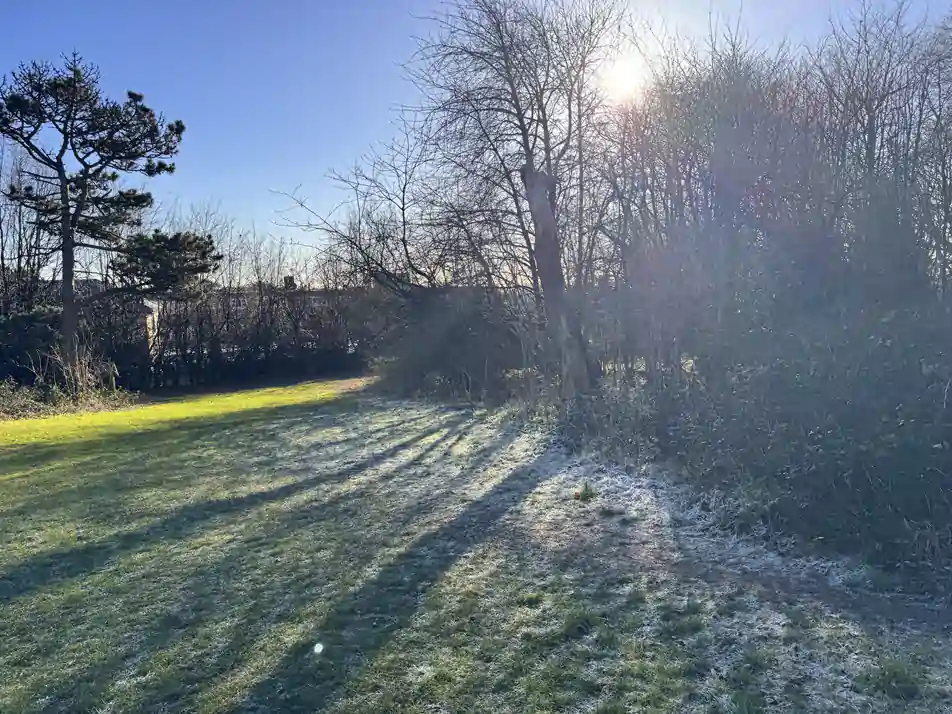The wintry Three Cornered Copse
As featured in The Hovarian magazine, February 2026.
It’s been a quiet few weeks for the Friends of Three Cornered Copse.

A lot of inclement weather, and a lack of an assigned park ranger, has prevented workdays. But there is still work to be done in this green lung on the edge of our city.
There is much work to do: we need to clear the paths before the spring growth closes them off; we need to tidy up the collars around the hundreds of planted saplings that remain after the winds and rain have swept them askew; the ground around our commemorative beech trees needs clearing; and, of course, the litter has started to accumulate.
Bird activity has begun to increase. Those that have survived the winter are starting to form pairs and look for nesting territories. According to the RSPB, garden bird population counts regularly show that their numbers can plummet by 50% or more during cold winters. Bird populations in the UK have been in steady decline, due mainly to loss of habitat, along with other factors such as avian flu, which makes the care of spaces like the copse even more important. Walking in the woods, one can hear great tits, robins, wrens and finches making their presence known as they seek nesting areas and establish territory. One of our members has reported hearing the woodpeckers drilling high up in the older trees.
The fly-tipping seems to have ceased. All of the rubbish was cleared away at the end of last year, and hopefully, none will replace it. There still remains a large ring of hard PVC, it seems to be a section of a sewer pipe, which stands about 3 feet high and is extremely heavy. Perhaps it was discarded by highway contractors when working on King George VI Avenue. No wonder the council avoided moving this. Unfortunately, one or two of our visitors inexplicably seem to treat it as a litter bin, and we’ve removed a few coffee cups that shouldn’t have been discarded in there.
The snowdrops have begun to appear, always a heart lifting sign of the return of spring. The woodland paths that are formed each year tend to wander, so we try to protect the patches of snowdrops from the foot traffic. Its well worth a walk through the top of the woodland to see the “Fair Maids of February” raising their heads above the forest floor.
Simon Baxendale
